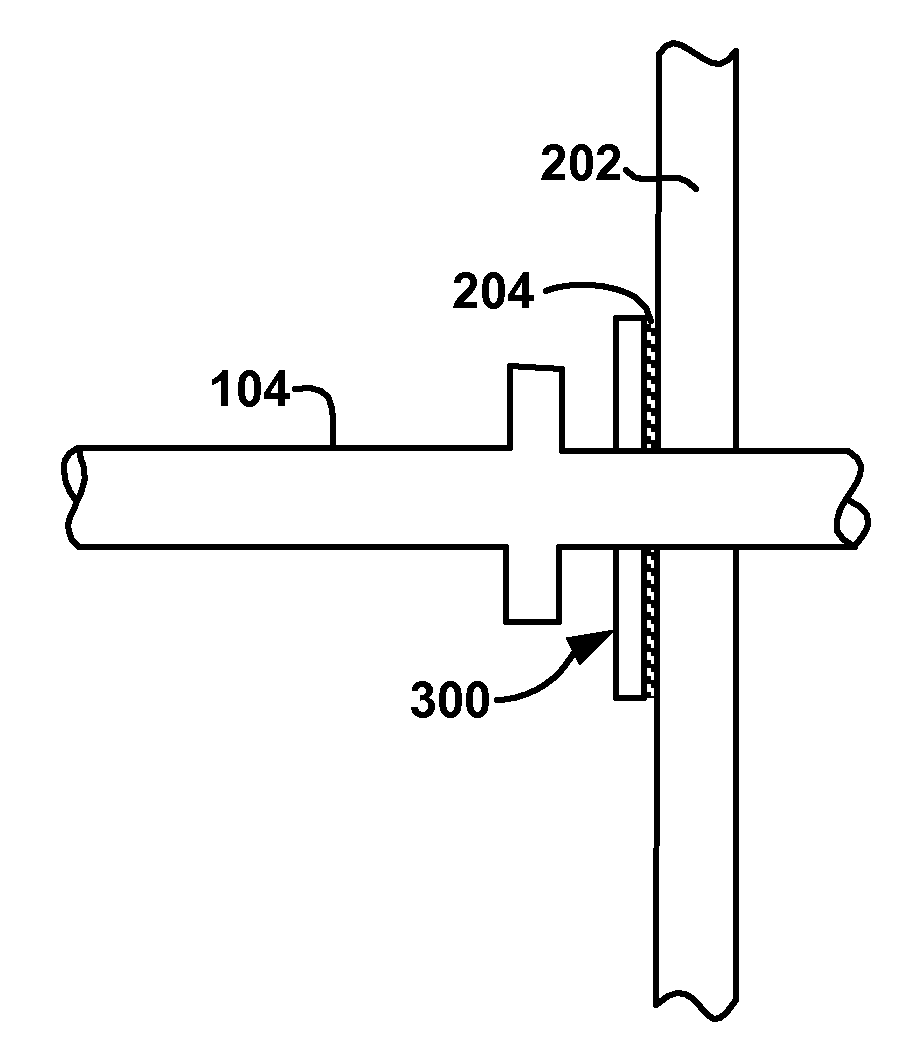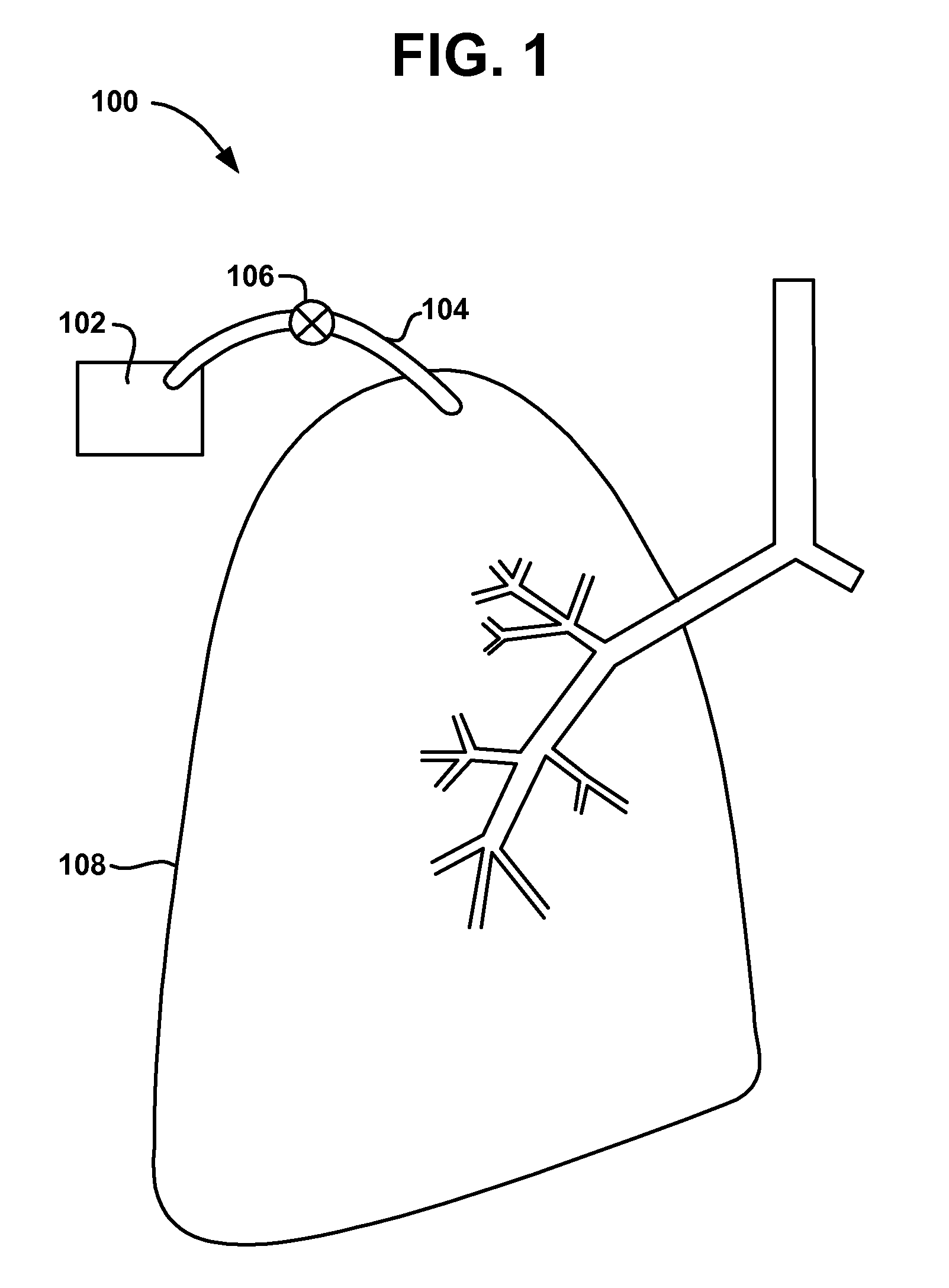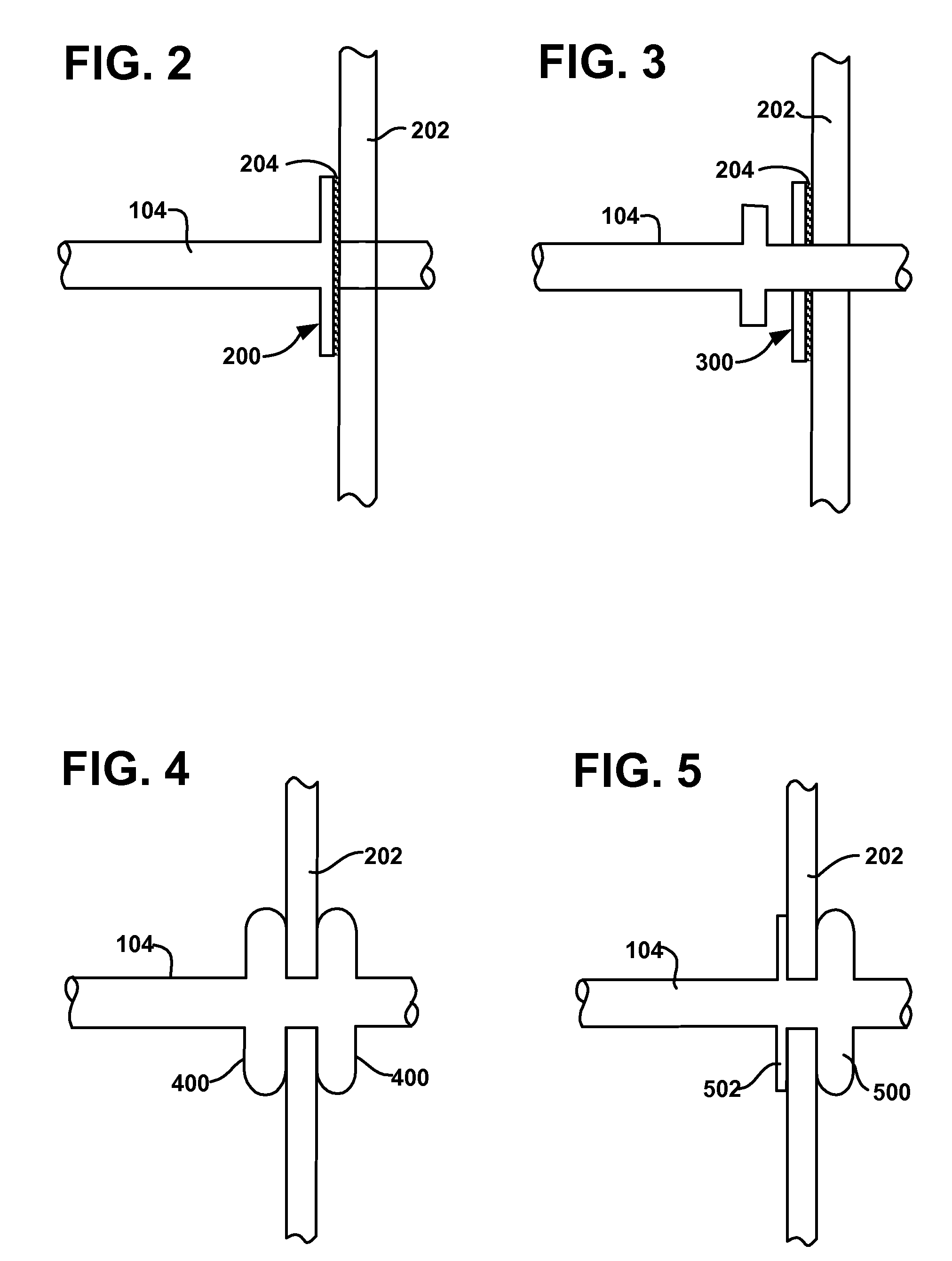Devices and methods to create and maintain the patency of an opening relative to parenchymal tissue of the lung
a technology of parenchymal tissue and parenchymal tissue, which is applied in the field of methods and devices for treating diseased lungs, can solve the problems of bronchioles being constricted and inflamed, lungs typically collapsing, and reducing the efficiency of the cilia to sweep the bronchial tubes and trachea of mucus containing foreign matter, so as to increase the expiratory flow and effectively treat hypoxia.
- Summary
- Abstract
- Description
- Claims
- Application Information
AI Technical Summary
Benefits of technology
Problems solved by technology
Method used
Image
Examples
Embodiment Construction
Long-Term Oxygen Therapy System
[0043]A long term oxygen therapy system and method may be utilized to deliver oxygen directly into the lung tissue in order to optimize oxygen transfer efficiency in the lungs. In other words, improved efficiency may be achieved if oxygen were to be delivered directly into the alveolar tissue in the lungs. In emphysema, alveoli walls are destroyed, thereby causing a decrease in air exchange surface area. As more alveoli walls are destroyed, collateral ventilation resistance is lowered. Accordingly, if it can be determined where collateral ventilation is occurring, then the diseased lung tissue may be isolated and the oxygen delivered to this precise location or locations. Various methods may be utilized to determine the diseased tissue locations, for example, computerized axial tomography or CAT scans, magnetic resonance imaging or MRI, positron emission tomograph or PET, and / or standard X-ray imaging. Once the diseased tissue is located, pressurized o...
PUM
 Login to View More
Login to View More Abstract
Description
Claims
Application Information
 Login to View More
Login to View More - R&D
- Intellectual Property
- Life Sciences
- Materials
- Tech Scout
- Unparalleled Data Quality
- Higher Quality Content
- 60% Fewer Hallucinations
Browse by: Latest US Patents, China's latest patents, Technical Efficacy Thesaurus, Application Domain, Technology Topic, Popular Technical Reports.
© 2025 PatSnap. All rights reserved.Legal|Privacy policy|Modern Slavery Act Transparency Statement|Sitemap|About US| Contact US: help@patsnap.com



